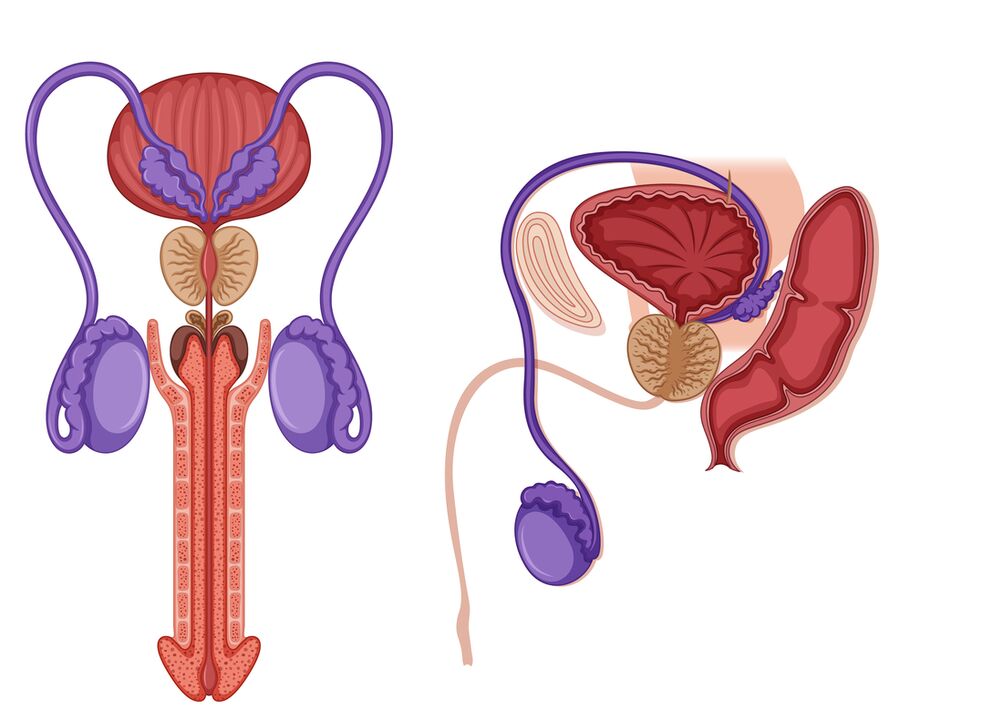
Prostate inflammation is now the leader in the group of predominantly sexually transmitted male diseases. The complications threaten infertility, reduced libido and impotence.
Symptoms of prostatitis are not only pain, difficulty urinating and inflammation of the spermatic cord. The most dangerous consequence of advanced inflammation can be a cancerous degeneration of the prostate. While a pathological process diagnosed in time can be easily stopped.
Causes of inflammation
The risk of prostate inflammation increases due to various factors that promote the disease:
- Hypothermia, one-time or related to the nature of outdoor work.
- A sedentary lifestyle leads to dysfunction of the digestive system.
- Chronic somatic diseases (diabetes mellitus, high blood pressure).
- Foci of focal, perifocal infection (rhinitis, tonsillitis, stomatitis, gastritis).
- Persistent UGI (chlamydia, trichomoniasis, herpes virus).
- Stress, insomnia, chronic fatigue syndrome.
- Reduced immunity due to previous illnesses, operations, emotional stress.
- Bad habits that lead to the development of intoxication: alcohol, smoking, strong coffee.
- Work-related injuries to the perineum of motorists, athletes and workers in hazardous industries.
- Promiscuous sexual life, interrupted intercourse, intercourse without sensuality with incomplete ejaculation, prolonged absence of intimacy (low need for sperm leads to stagnation in the gland).
- STDs.
Despite a relatively large number of provocative moments, the essence of prostatitis is the appearance of stagnation within the organ against the background of impaired blood circulation and lymphatic drainage.
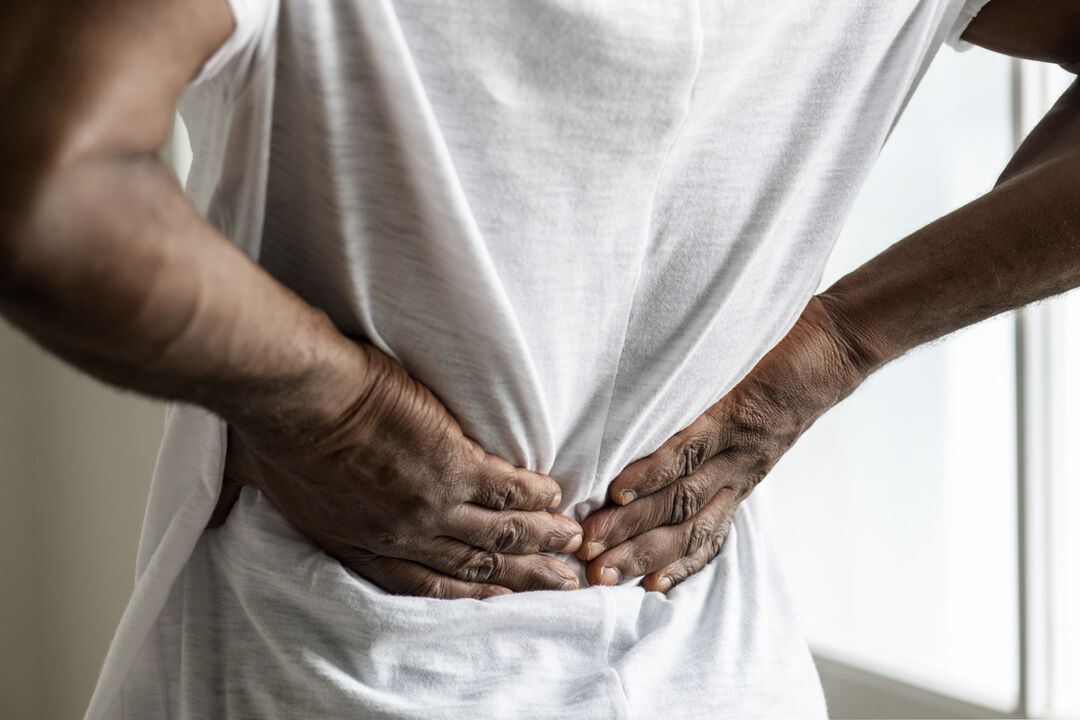
classification
In modern urology there is no uniform classification of the disease. However, practicing doctors prefer this option for classifying the inflammatory process in the prostate:
Depending on the course of the disease:
- Acute prostatitis. It accounts for more than 50% of cases of the disease in people no older than 30-35 years.
- Chronic optionIt is a non-age category. It does not manifest itself for a long time; the trigger for its development is a cold or infection.
For the reason that caused the pathology:
- Bacterial inflammation of the prostate gland, which is prevalent in men under 40 years old, occurs against the background of ultrasound examination and does not extend beyond the boundaries of the organ.
- Non-bacterial pathological changes in the gland, predominantly chronic.
- Viral inflammation of the prostate is characterized by an acute course that affects the entire genital area.
Depending on the type of structural changes in the prostate:
- Fibrous prostatitis is characterized by rapid irreversible growth of the gland and requires radical intervention. Clinically similar to a prostate adenoma.
- Calcific inflammation of the prostate occurs due to the formation of stones in the prostate. Considered a harbinger of cancer.
- Every second patient is diagnosed with congestive prostatitis, which is the result of a sedentary lifestyle.

Signs of the disease
If a man notices at least two of the following symptoms of prostatitis, he should immediately contact a qualified specialist:
- Difficulty urinating with the appearance of an intermittent, weak stream of urine that is unusually short and causes splashing, difficulty and pain before urination. The frequent urge to empty the bladder occurs especially at night.
- Pain localized in the lower abdomen radiates to the scrotum, perineum and rectum.
- Sexual dysfunction.
- Problems with ejaculation, changes in sperm (consistency, quantity).
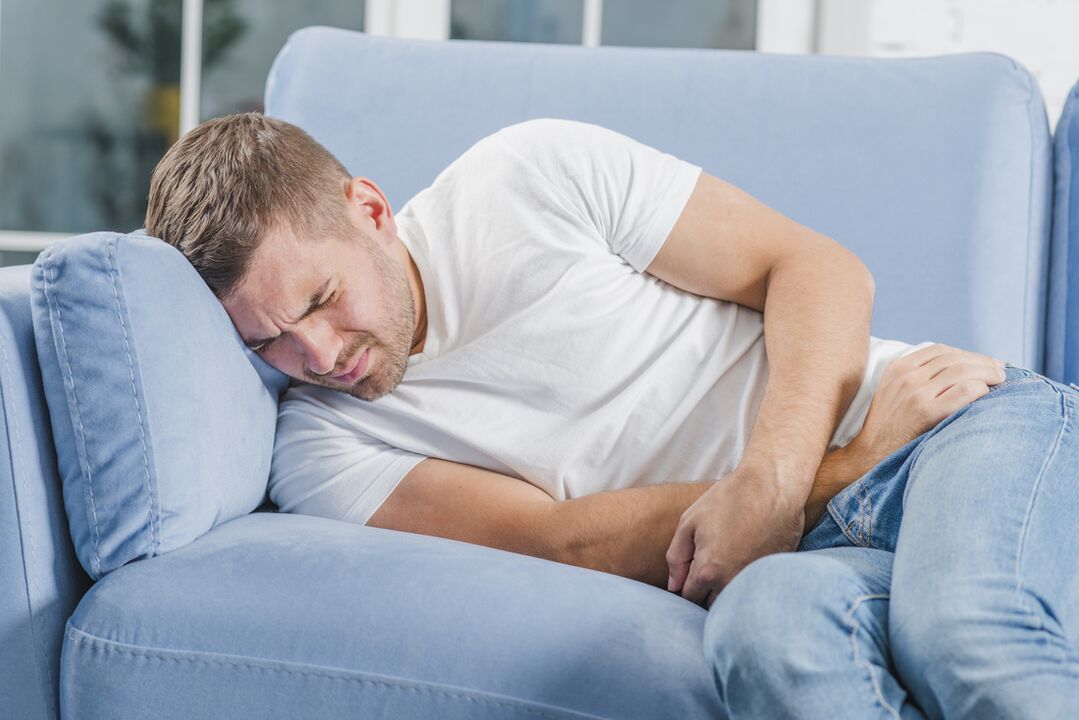
Acute prostatitis
The disease begins with a sharp increase in temperature (up to 40 degrees), painful headaches and fever. The symptoms that occur are accompanied by pain in the groin, perineum, back, discharge from the urethra, frequent urination and a constant urge to urinate.
The emptying of the bladder is delayed and with a burning sensation. The urine itself becomes cloudy and may contain blood. Irritability and tiredness occur.
The result of acute prostatitis can be a complete cure of the process (if treatment is started on time). Since changes occur in many pelvic organs, these should not be left to chance, otherwise corresponding complications will arise:
- Vesiculitis is an inflammation of the seminal vesicles, the cause of the appearance of pus in the semen, which not only affects the quality of the ejaculate, but also leads to the loss of reproductive function.
- Colliculitis - inflammatory changes in the seminiferous tubercle become the cause of the development of severe pain during sex, interruption of orgasm and impotence of a psychological nature.
- The formation of an abscess in the prostate body, its rupture and purulent damage to the rectum lead to exacerbation of symptoms, severe intoxication of the body and even death.
- Stagnation in the tissue of the prostate leads to changes in its structure, disruption of the innervation and blood supply of both the gland itself and nearby organs with disruption of its functions. The erection is no longer sufficient for complete sexual intercourse, premature ejaculation and prolonged sexual intercourse without orgasm occur.
- Scarring changes in the gland and spermatic cord lead to infertility, a deterioration in sperm quality and sperm motility. A narrowing of the urethra interferes with the normal urination process; Bladder obstruction can lead to acute urinary retention, requiring emergency surgery.
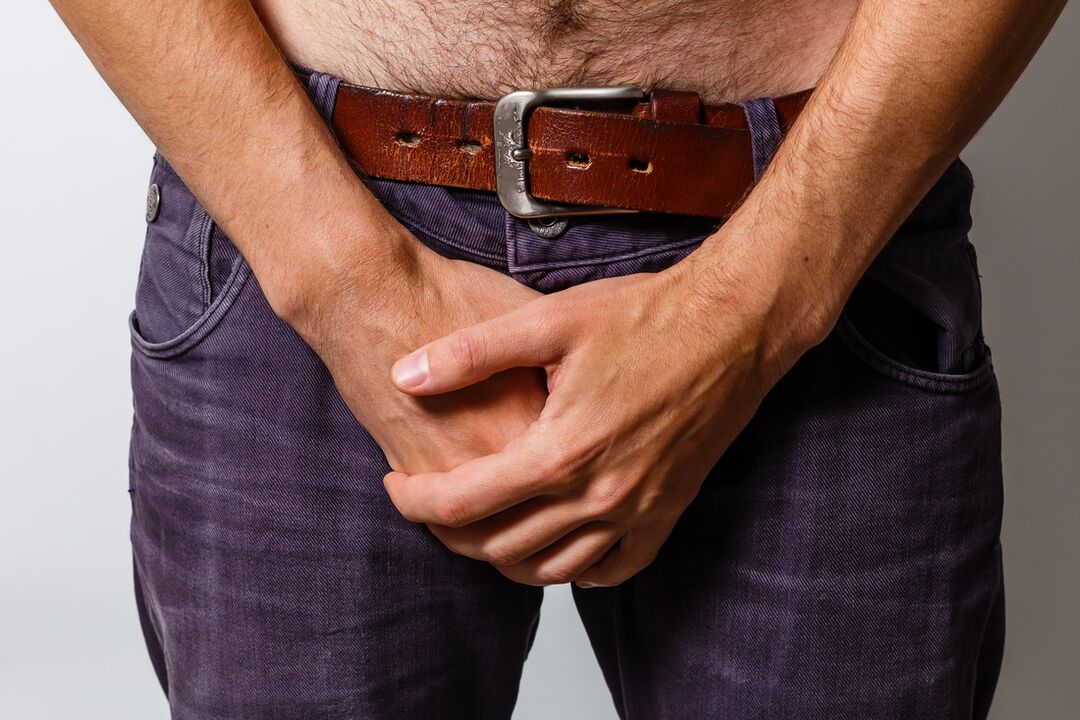
Chronic prostatitis
The main feature of the disease is the vagueness of clinical symptoms with a long, persistent course. More often, the chronic form occurs independently as a primary pathology against the background of stagnation of blood in the vessels (prostatosis) and abacterial prostatitis.
The main symptoms of chronic prostatitis are:
- Fever;
- Pain occurs in the scrotum, perineum, anus and back;
- urinary disorder;
- mucous or mucopurulent discharge from the rectum and urethra, even without urine or stool;
- erectile dysfunction, painful ejaculation, interrupted sexual intercourse, prolonged sexual intercourse without feeling of satisfaction.
Inaction and improper treatment of chronic prostatitis can lead to complications:
- Infertility is the result of chronic inflammation of the spermatic cord, vesicles, testes and their appendages.
- Cystitis, pyelonephritis (other diseases of the genitourinary system) are a consequence of hematogenous and mechanical spread of microbes.
- Sepsis.
- Persistent decrease in immunity.
- Untreated prostatitis can cause cancer in 35-40% of cases.
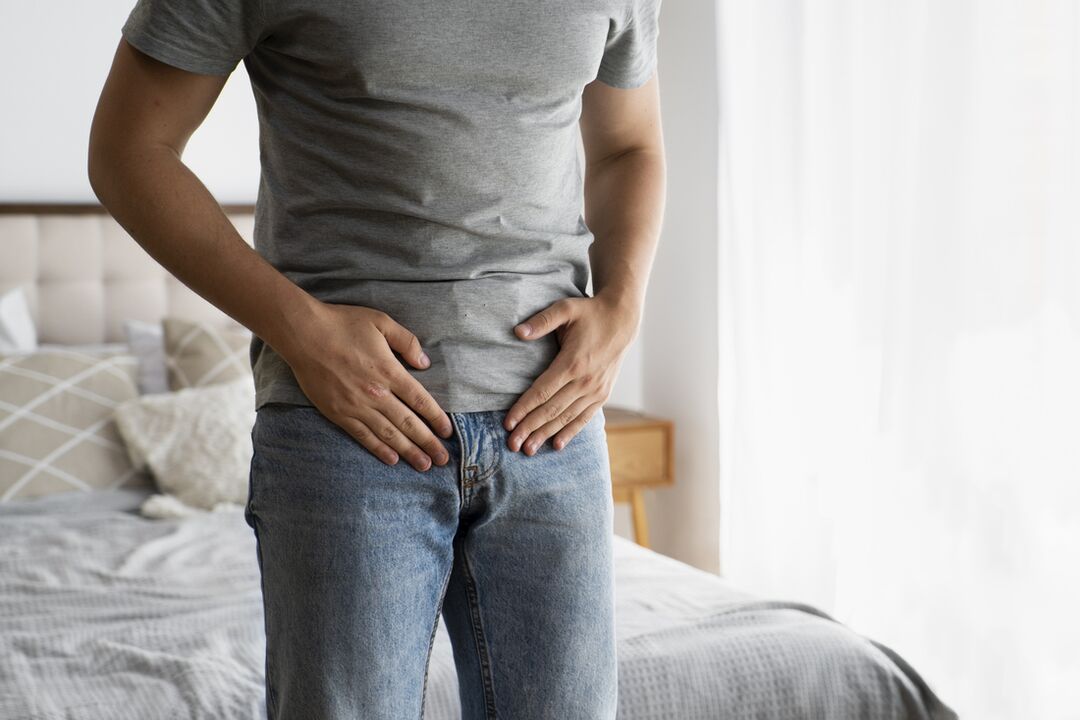
diagnosis
The clinical picture of the disease is typical, so the diagnosis is not difficult. It is carried out by a urologist based on the anamnesis, examination of the patient and laboratory minimum using the most modern medical equipment:
- Rectal examination of the gland, sampling of secretions for examination (culture with determination of antibiotic sensitivity).
- UAC, UAM, bacterial culture of urine.
- Smear for sexually transmitted diseases, UGI examination.
- Daily monitoring of the urinary rhythm, measurement of urinary frequency (uroflowmetry).
- Ultrasound or TRUS is performed for differential diagnosis.
- If it is necessary to exclude oncology, a biopsy is taken, urography is performed and the PSA level (prostate-specific antigen) is determined.
- To diagnose infertility, a spermogram is prescribed - an analysis of ejaculate to determine a man's fertility.
Based on the results of the patient's examination, an individual scheme for the complex treatment of prostatitis is drawn up. When prescribing medications, the form of the pathology and the presence of concomitant diseases are taken into account. The doctor decides where the therapy will be carried out (inpatient or outpatient). The course of treatment takes place under careful laboratory monitoring of the results.
One of the most modern centers for the treatment of prostatitis is a specialized clinic. Since the problem of infertility is closely related to inflammatory urological diseases, medical professionals pay great attention to this problem.
In the clinics, every patient has the opportunity to undergo a full cycle of special examinations, receive psychological support, undergo treatment with the latest generation drugs used in this area and get acquainted with the latest methods of treating prostatic inflammation. Last but not least, the question of effective rehabilitation of patients, clinical observation and prevention is important in the complex therapy of prostatitis.
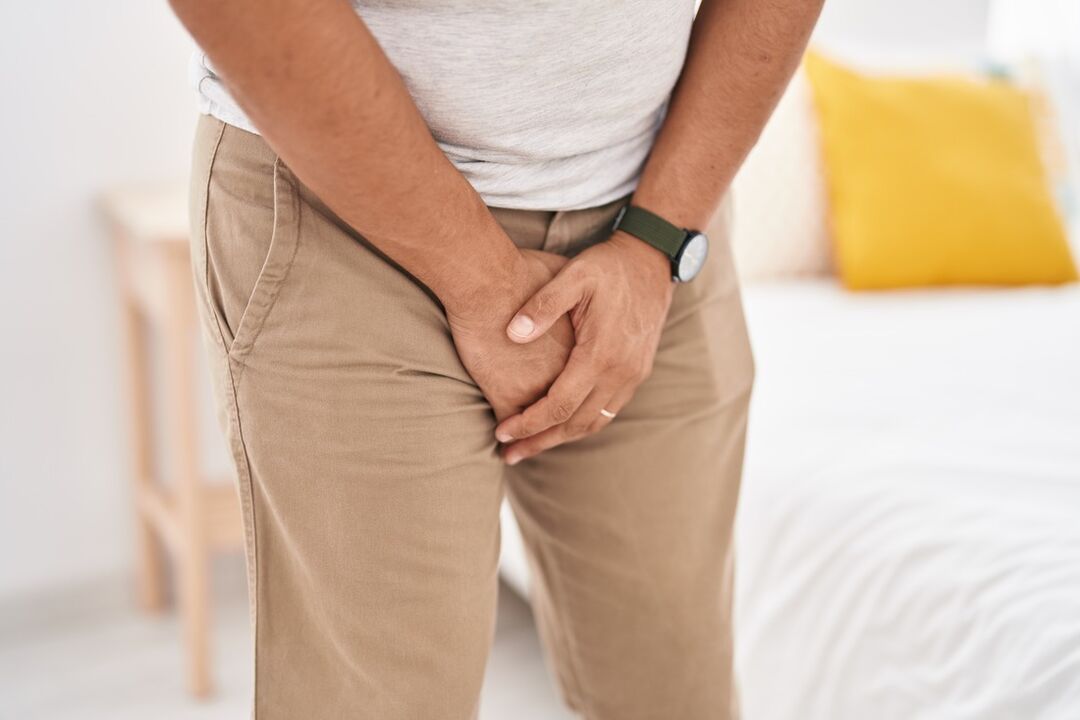
Treatment of acute prostatitis
Acute prostatitis requires bed rest, a special salt-free diet and sexual rest.
Methods of course treatment:
- The most effective treatment for prostatitis is etiotropic therapy. If the prostatitis is caused by an infection, treatment with antimicrobial agents is the priority, which relieves the symptoms of inflammation.
- Pain syndrome is relieved by analgesics, antispasmodics, rectal suppositories and microenemas with warm analgesic solutions. NSAIDs can be used.
- Immunostimulants, immunomodulators, enzymes, vitamin complexes and a combination of microelements have proven their effectiveness.
- Physiotherapeutic methods are only possible in the subacute stage of the disease. They improve microcirculation, increase immunity: UHF, microwave, electrophoresis, laser, magnetic therapy.
- Another effective method of influencing the prostate is massage. It opens the ducts and normalizes blood circulation in the scrotum and pelvis.
- Acute renal filtrate retention can be corrected by catheterization and trocar cystostomy.
- The purulent process requires surgical intervention.
- Psychologist consultations.
Treatment of chronic prostatitis
With a long-term (at least a month) effect on the prostate, there is no 100% guarantee of cure. Priority is given to herbal medicines, immune correction and changing household habits:
- Herbal preparations are often used in urological practice. They are able to accumulate at the site of the most active pathological process, protect cells from oxidation, remove free radicals and prevent the proliferation of glandular tissue.
- Antibacterial therapy is selected individually based on the sensitivity of microbes to drugs.
- Drugs that strengthen immunity not only help to cope with prostatitis, they also correct the negative effects of antibiotics that disrupt the functioning of the immune system.
- The pain syndrome is alleviated by administering alpha blockers and muscle relaxants.
- Prostate massage allows you to mechanically remove the "extra" secretion of the gland through the urethra, improving blood circulation and minimizing congestion.
- Physiotherapy: laser, magnet, ultrasound, iontophoresis, warm sitz baths or microenemas with herbs.
- In severe cases, intravenous fluid administration with diuretics is indicated. This stimulates abundant urine production, prevents symptoms of intoxication, the development of ascending cystitis and pyelonephritis.
- Herbal laxatives are used for constipation.
- The urologist and the psychologist work with the patient to develop an individual long-term program consisting of a daily routine, necessary rest, nutrition, dosed physical activity and sexual activity.
- If the chronic process is resistant to therapy and the outflow of urine is blocked, surgical intervention is prescribed: removal of all affected tissue (transurethral resection of the prostate) or complete removal of the gland with surrounding tissue (prostatectomy). It is practiced in exceptional cases and is associated with impotence and urinary incontinence. Young people do not undergo surgery because it can lead to infertility.
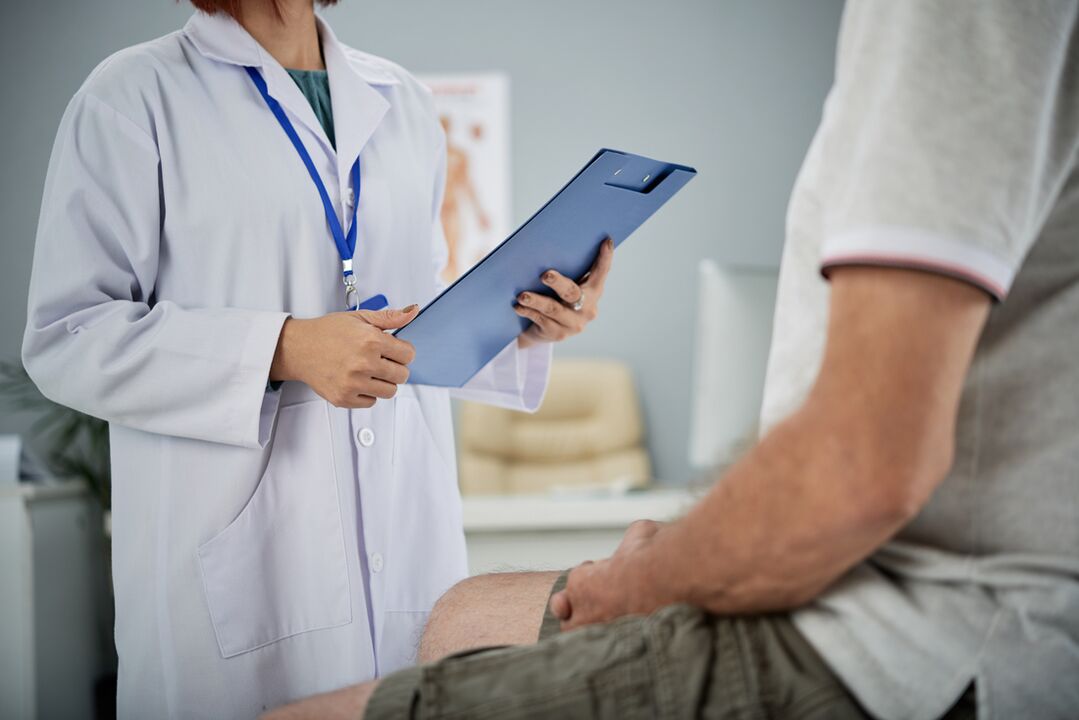
prevention
To prevent the occurrence of a disease unpleasant for men, you need to eliminate provoking factors and follow simple rules:
- Lead a healthy lifestyle, give up bad habits.
- Don't get too cold.
- Drink at least 1. 5-2 liters of water per day.
- Strengthen your immune system, walk a lot, strengthen yourself.
- Do sports and sports, visit fitness clubs.
- Avoid stressful situations.
- Practice a regular sex life with a steady partner.
- Visit your urologist regularly.
Questions and answers on the topic
What is prostatitis and how to recognize it?
Prostatitis is an inflammation of the prostate gland that can cause pain in the lower abdomen and problems with urination. A frequent urge to go to the toilet, especially at night, or pain when urinating can be signs of prostatitis.
Why does prostatitis occur?
Prostatitis can occur due to an infection, cold, stress or even a sedentary lifestyle. Sometimes it develops after a disease of the genitourinary system.
Is it possible to completely cure prostatitis?
Acute prostatitis can be completely cured with proper treatment. Treatment of chronic forms takes longer, but the right approach helps relieve symptoms and prevent exacerbations.
How is prostatitis treated?
Treatment includes antibiotics (if the cause is infection), anti-inflammatory drugs, prostate massage and physical therapy. The doctor will choose the best treatment method depending on your situation.
Can I exercise if I have prostatitis?
Light physical activity such as walking or swimming is beneficial. Vigorous exercise can worsen the condition, so it is important to see a doctor.
How can you prevent prostatitis?
For prevention, you need to lead an active lifestyle, avoid hypothermia, monitor the health of the genitourinary system and promptly treat infections. It is also important to avoid stress and eat healthy.
Should I see a doctor if symptoms go away on their own?
Yes, even if symptoms temporarily subside, it is important to see a doctor. Untreated prostatitis can lead to complications that may worsen your health in the future.
Questions and answers on the topic
Is it possible to completely cure prostatitis?
Acute prostatitis can be completely cured with timely treatment. Chronic prostatitis may require long-term therapy for symptom control, but with the right approach, symptoms can be minimized and the patient's quality of life can be significantly improved.
Can I exercise if I have prostatitis?
Light exercise such as walking, swimming, or yoga can be helpful for prostatitis. However, intense exercise and resistance training are best avoided, especially during an exacerbation. Be sure to consult your doctor before starting exercise.
Does prostatitis affect fertility?
Prostatitis can temporarily affect fertility because inflammation of the prostate can affect sperm quality. After successful treatment of prostatitis, fertility is usually restored.
Do I have to follow a special diet if I have prostatitis?
Yes, if you suffer from prostatitis, it is recommended to avoid spicy foods, alcohol, caffeine and fatty foods as these can increase inflammation. It is beneficial to eat more vegetables, fruits and whole grains and to drink enough water.
Can prostatitis go away on its own?
Prostatitis does not go away on its own and must be treated. Without proper treatment, symptoms can worsen and lead to complications. If symptoms occur, you should consult a doctor.
How long does prostatitis treatment take?
The duration of treatment depends on the form of prostatitis. Acute prostatitis is usually treated within a few weeks, while chronic prostatitis may require longer treatment, which can last months.
How to prevent recurrence of prostatitis?
To prevent relapses, it is important to follow your doctor's recommendations, lead an active lifestyle, avoid hypothermia, eat properly and undergo regular medical examinations.

























